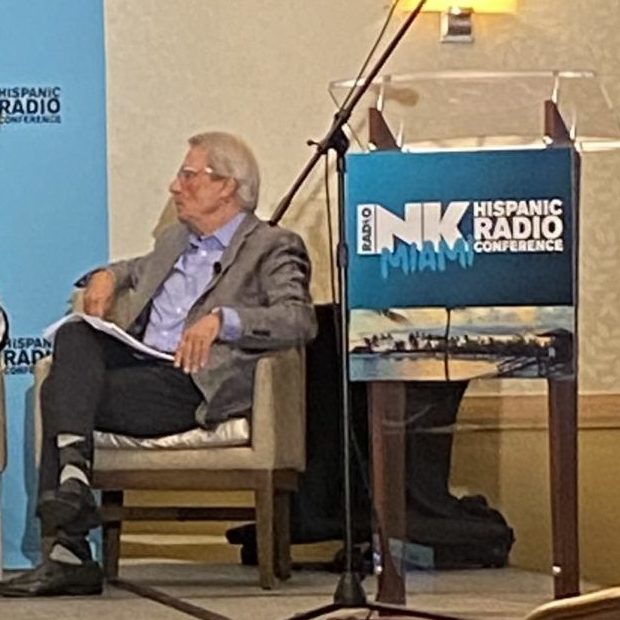As far as Capitol Hill legislators are concerned, it’s only an advancement of committee- approved legislation — with two amendments — that will now see a full vote in the U.S. House.
Yet, as far as the Broadcast Radio and TV industry is concerned, it’s a major step forward toward securing the ability to air cannabis advertising — a potentially quick-dollar category ad for an audio industry segment that still hasn’t fully recovered from the COVID-19 pandemic and may never will.
The House Appropriations Committee late Friday (6/27) said yes to the FY 2023 Financial Services and General Government funding bill.
It was a 31-22 vote, and it includes $29.8 billion in funding, a 17% increase from FY 2022.
What does this mean, the legislation:
- Assists small businesses and entrepreneurs through the Small Business Administration and Community Development Financial Institutions
- “Protects our democracy” with Election Security Grants “to ensure the integrity and safety of our elections”
- “Rebuilds” the Internal Revenue Service “to finally crack down on big corporations and the wealthy who are not paying their fair share and to provide better customer service to working families navigating the tax system”
- Supports working and middle-class families by increasing funding for consumer protection activities at the Consumer Product Safety Commission and the Federal Trade Commission
- “Confronts the climate crisis” by providing funding to start the transition of the Federal vehicle fleet to electric and zero emission vehicles
Illinois Democrat Mike Quigley, who chairs the Financial Services Appropriations Subcommittee, inserted an approved amendment that makes “technical and noncontroversial changes” to the bill.
Rep. Chris Stewart (R-Utah) successfully saw an amendment added to the bill that prohibits the government’s use of cloud computing platforms unless they prevent child exploitation images.
When one views a summary of the bill, questions may immediately arise as to what this possibly has to do with broadcast media. There’s a review of the dollars being provided to the Treasury Department, the Executive Office of the President, and the Judiciary branch of the Federal government. It isn’t until one looks at FY 2023 appropriations for the District of Columbia that it becomes clear why some broadcast TV and radio industry advocates are excited over the proposed legislation.
“The bill removes objectionable policy riders previously carried that undermine home rule in the District of Columbia,” the House Appropriations Committee summary states. This includes eliminating a ban on the use of local funds to legalize marijuana.
The nitty-gritty language that’s excited the NAB and the New York State Broadcasters Association, among others, is buried on Page 75 of the 190-page bill heading to a floor vote in the U.S. House.
It reads as follows:

In the plainest terms, this language would prohibit the FCC from imposing a forfeiture or deny a license renewal for any broadcast station because they aired advertising tied to the sale of cannabis or cannabis-derived products.
These ads, of course, would be permissible only in states where the sale of such products are legal, such as Washington. RBR+TVBR in July 2016 paid a visit to Main Street Marijuana in Vancouver, Wash., just minutes north of the Portland, Ore., metropolitan area. Here, a Driver’s License was the only verification necessary to purchase both cannabis or cannabis-derived products. Today, even more locales offers such opportunities to consumers.
The 2023 fiscal year begins October 1, 2022.
That means the full House, and then the U.S. Senate, will need to approve the legislation. Whether or not that happens to the bill in its current form is largely unknown. But, that’s not stopped the NAB from expressing their pleasure over the mellow tone the marijuana language in the bill presents to broadcast media.
National Association of Broadcasters spokesperson Alex Siciliano said, “As the vast majority of states have legalized cannabis in some form, today marks a long overdue step toward finally allowing broadcasters to receive equal treatment regarding cannabis advertising that other forms of media have had for years. While we welcome today’s progress, local broadcasters will continue to work with all policymakers towards a broader resolution of this competitive disparity and in support of our unique service to local communities.”
David Donovan, President of NYSBA, chimed in on behalf of the Safe Advertising Coalition. He said, “We are grateful to House Appropriations Committee Chairwoman Rosa DeLauro, Subcommittee Chairman Mike Quigley and members of the Committee for recognizing the unfairness of the present situation with respect to cannabis advertising. The provision in this House appropriations bill is a major step forward for leveling the playing field for local broadcasters. We believe the law of the state in which a station is licensed should determine whether a station can accept cannabis advertising if they so choose. We look forward to working with members of Congress and the Administration to help restore parity between local broadcasters and other media outlets.”
Donovan notes that cable TV, satellite, internet, print, magazine, billboards and social media platforms are free to accept and transmit these advertisements.
Should the appropriations bill become law, what should radio and TV stations do? Speaking to Streamline Publishing’s Radio Ink, Fletcher Heald & Hildreth Managing Partner Francisco Montero says the answer to that question is “still slightly complicated.”

He commented, “Broadcasters would then be safe from FCC action for one year as a result of the Appropriations Bill provision. However, remember that this appropriations [bill] is only good for one year. Also, it is not clear to me that the Appropriations Bill provision, if enacted, would clear broadcasters or anyone else from aspects of the Federal Controlled Substances Act that make it illegal to promote the sale of a controlled substance.”
However, Montero believes that it seems unlikely that other branches of the Federal Government, such as the Justice Department or DEA, would go after broadcasters for running advertisements under the provisions of the Controlled Substances Act if the Commission was not allowed to enforce the provision. “In that case, it would be safer for broadcasters to take the ads and it would put broadcasters on a more-equal footing with, say, billboards, websites, or newspapers,” Montero said.
 The 2023 Financial Services and General Government funding bill includes $390 million for the FCC, an increase of $8 million above the FY 2022 enacted level, to support efforts to expand broadband access, improve the security of U.S. telecommunications networks, and administer COVID-19 relief programs.
The 2023 Financial Services and General Government funding bill includes $390 million for the FCC, an increase of $8 million above the FY 2022 enacted level, to support efforts to expand broadband access, improve the security of U.S. telecommunications networks, and administer COVID-19 relief programs.





